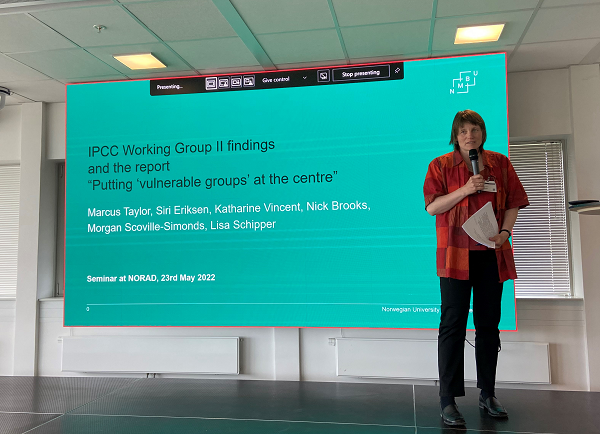
by Katharine Vincent | May 30, 2022 | Projects, Publications, Travel
Dr Katharine Vincent was in Oslo last week with colleagues Professor Siri Eriksen and Drs Nick Brooks and Morgan Scoville-Simonds. The team – joined remotely by Drs Marcus Taylor and Lisa Schipper – made a presentation to the Norwegian Agency for...
by Katharine Vincent | Jan 22, 2021 | Publications
A new paper "Adaptation interventions and their effect on vulnerability in developing countries: Help, hindrance or irrelevance?" has just been published in the journal World Development. The paper, led by Siri Eriksen with an author team of 20, including...
by Katharine Vincent | Nov 13, 2017 | Projects, Publications
At its annual meeting and stakeholder events last week in Malawi, UMFULA published a number of outputs relating to climate information. Climate briefs were presented for both Malawi and Tanzania, in which future climate projections are highlighted, based on 34 global...
by Katharine Vincent | Oct 3, 2016 | Publications
A paper on the role of the Vulnerability, Impacts, Adaptation and Climate Services Advisory Board (VIACS AB v1.0) and its contribution to CMIP6 has been published in Geoscientific Model Development. CMIP6 is the mechanism for comparing global climate models. The VIACS...
by Katharine Vincent | Jun 24, 2015 | Projects, Uncategorized
Dr Katharine Vincent is at the University of Southampton this week to work with colleagues in the northern team of the DECCMA project. DEltas, vulnerability and Climate Change: Migration as an Adaptation is one project within the Collaborative Adaptation Research in...


